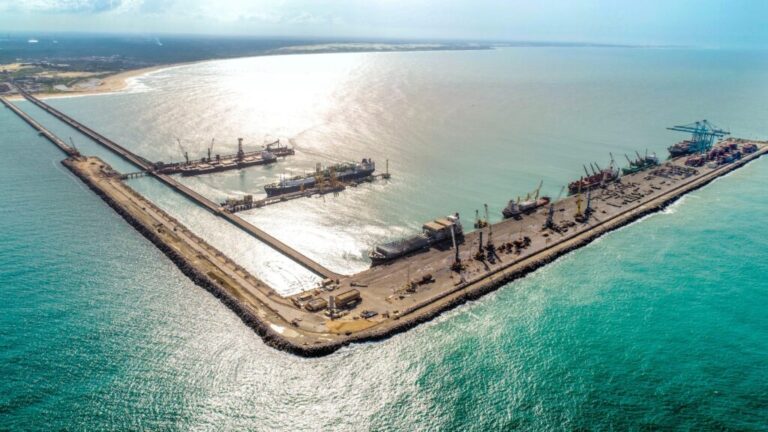FRV is one of a number of companies that have already signed contracts with the government of Ceará for the production of green hydrogen and its derivatives in the state. The H2 Cumbuco project will be expanded in two phases to 2 GW of electrolysis capacity. The project uses residual municipal water that is treated by the local sanitary company.
Madrid-based renewable energy development company FRV has announced plans to develop a 2 GW green hydrogen project at the Pecém Industrial and Port Complex (CIPP) in the Brazilian state of Ceará.
FRV is part of the Saudi group Jameel Energy and is one of several companies that have already signed contracts with the government of Ceará for the production of green hydrogen and its derivatives in the state.
FRV’s H2 Cumbuco project will focus on the production of green ammonia for export, mainly to the European and Asian markets. The company plans to invest around BRL 27,000 million ($5 million) in the project, which is estimated to create 1,500 jobs during construction and more than 200 during operation. H2 Cumbuco is estimated to reach a total capacity of 2 GW.
The first phase of the project, budgeted at BRL 7 billion, includes 500 MW of electrolyzers that will produce 400,000 tons of ammonia annually. The second phase, which will require an additional investment of BRL 20 billion, will expand to 2 GW of electrolysis capacity and increase ammonia production to a total of 1.6 million tons per year.
Manuel Pavon, general manager of FRV South America, said construction of H2 Cumbuco would likely begin in 2027, with work expected to start between 2029 and 2030. The company chose the strategic location in the port of Pecém due to its accessibility to the American and European markets. , Pavon added.
FRV emphasized compliance with strict European regulations and sustainability principles in the implementation of the project, adding that it would be carried out at a very competitive cost. The project will use renewable energy and recycled water.
“This reuse of water will generate a circular economy and not compete with human supply,” said Neuri Freitas, president of the Ceará Water and Sewerage Company (Cagece).
FRV has also signed a Memorandum of Understanding with Utilitas Pecém, a joint initiative between Cagece and Fortaleza-based infrastructure and construction company PB Construções that provides the industry with sustainable and innovative solutions in infrastructure and basic sanitation.
In addition to FRV, the state has signed five other preliminary contracts with AES, Casa dos Ventos, Fortescue, Cactus and Voltalia, as well as 37 memoranda of understanding with Brazilian and international companies.
Assessing the impact of the project on the socio-economic development of the state, Ceara Governor Elmano de Freitas said: “The port of Pecém is a rich area. We want to develop, but we also want the city of Ceará to grow as the port of Pecém grows. I am very excited about this innovative FRV project.”
This content is copyrighted and may not be reused. If you would like to collaborate with us and reuse some of our content, please contact: editors@pv-magazine.com.


